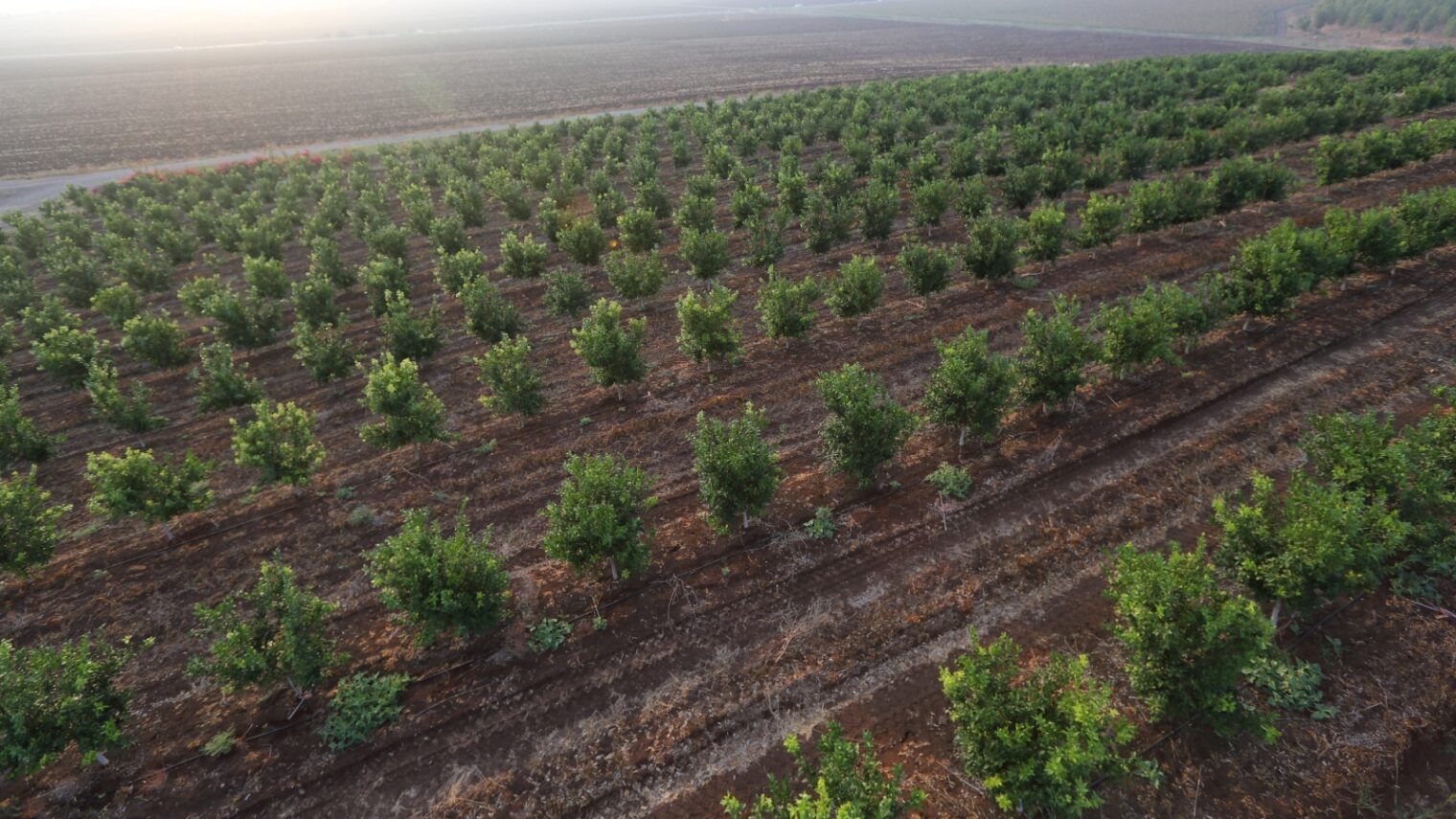It sounds like a fantasy of Audrey II, the colorful man-eating plant from the Little Shop of Horrors movie: Israeli scientists have developed a new device that taps into the stem of a tree and when water levels are low, the tree can text a message, email the farmer, or turn on the irrigation tap to water itself.
Measuring electric conductivity inside the tree, a parameter of water stress, the Israeli researchers Eran Raveh and Arieh Nadler from the Volcani Institute Agricultural Research Organization say that Californian citrus and mango farmers, banana plantations and vintners have already expressed interest in the technology, which can be programmed by the farmers themselves.
Now developing it into a product, Raveh tells ISRAEL21c that it will take about three to four years until the novel device is on the shelves: “We have a water crisis here in Israel and need a way to irrigate more accurately,” says Raveh.
The device will save farmers up to 30 to 40 percent in water use, he calculates. “The idea is that we were trying to find a way to give water more accurately to the trees. Usually [devices today] measure soil water content.”
Measuring tree water content this way, says the plant and soil specialist, is “complicated and takes a lot of time until you get a ‘true’ measurement, because there are many varying parameters involved.”
Cheap, simple, accurate
To get a true estimate of the moisture level in a plant or tree, a farmer must make a grueling check of 26 points in the ground around the plant.
“We’ve found a different way for measuring a tree’s water status: by sticking probes – three simple nails — into the main stem of the tree, we measure electric conductivity of the stem, and analyze the data to tell people if the tree is under good water conditions. It’s important to be able to do this in a simple and cheap way,” says Raveh, who came about the idea by accident.
“We were doing some other work, and realized that the data that came out of it reflects tree water status,” he says.
This data is the intellectual property that the future company will revolve around. Whether the information collected will be transmitted by SMS, email message, fax, or sent to switch on an automated tap, is a matter of simple programming.
For tomatoes and potatoes too
For now, the team will continue refining the first product, shaped like a small hammer — for trees — and will continue fine-tuning it to apply it in farm produce as well. Raveh envisions the cost will be very affordable for most farmers, about $250 per orchard: only one probe will be needed to reflect the water content in about every 500 trees.
“It can work on every stem and doesn’t matter what kind of plant material,” he says. “Olives, palm, banana — at the moment we are working with big trees, but it’s a matter of calibrating [the device] to move it to younger and smaller plants. Our solution is cheap, it can be automated and is very accurate.”
Orchard farmers everywhere, and the planet, will be saying thank you. “In big orchards, water use is a problem,” says Raveh, who estimates that an orchard with thousands of trees could cut its water use by almost half. It could also spare trees and plants from being over-watered.
He doesn’t expect the device will be that useful for the homeowner with a few trees on a lot, because in this case it’s not difficult to see if a tree is water stressed. A “smart” tree that can send text messages, however, could be used a novelty item to entertain and teach the kids about water, plants and the environment.
















